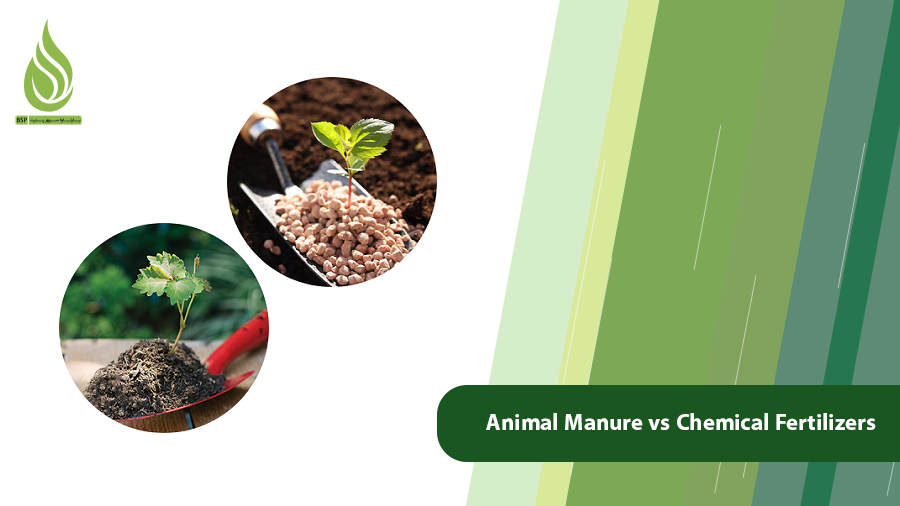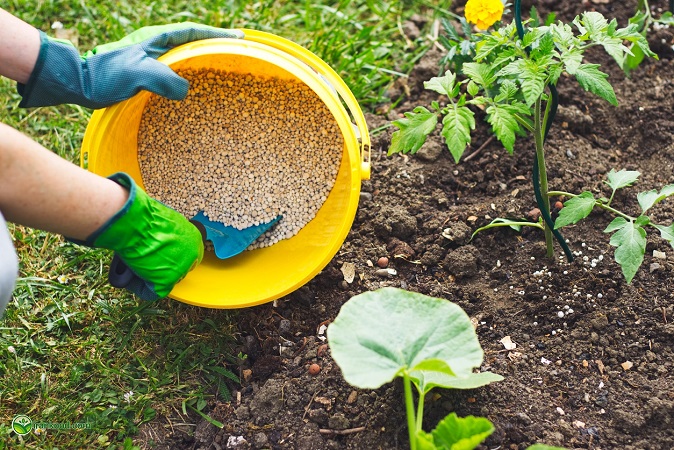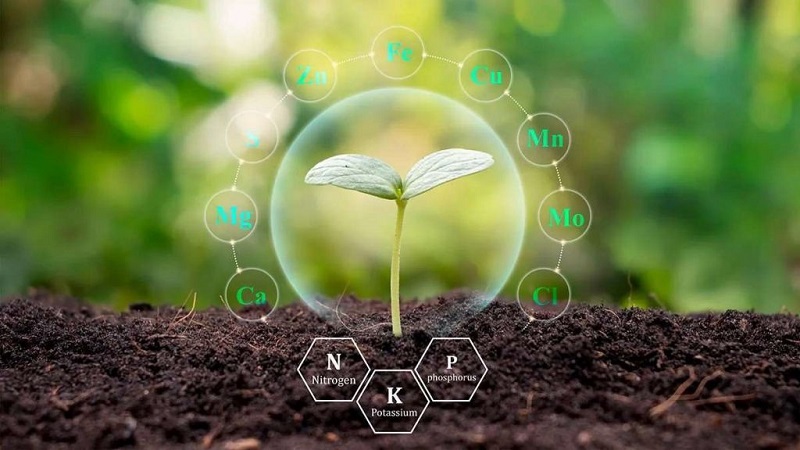
Animal Manure vs Chemical Fertilizers: Which is Better?
In agriculture, choosing the right type of fertilizer is a key factor in producing high-quality, abundant crops. Is animal manure—with its natural, sustainable qualities—the better option for farmers? Or are chemical fertilizers, with their fast-acting, measurable effects, the smarter choice for boosting crop yields? Both animal manure and chemical fertilizers have unique advantages and drawbacks, and the decision between them should depend on soil needs and priorities. In this article, we’ll break down the pros and cons of each to help you make an informed choice.
Understanding Animal Manure and Chemical Fertilizers
Fertilizers are organic or mineral substances used to improve plant health and productivity. Broadly, they fall into two categories:
- Organic Fertilizers: Natural products like plant-based compost or animal manure.
- Inorganic Fertilizers: Synthetic, industrially manufactured chemical fertilizers.
What is Animal Manure (Organic Fertilizer)?
Animal manure is organic material derived from the waste of livestock such as cows, sheep, chickens, and other farm animals. It acts as a vital nutrient source for plants and trees. Microbes in the soil break down the manure, gradually releasing its nutrients. Because these nutrients are not water-soluble, they become available to plants more slowly over time.

Benefits of Organic Fertilizer
Organic fertilizers, such as animal manure, offer significant benefits for soil health and plant growth. Below, we break down their key advantages:
Effects on Soil:
- Improves Soil Structure: Enhances aeration and oxygen availability, promoting healthier root systems.
- Boosts Water Retention: Increases the soil’s ability to hold moisture, reducing irrigation needs.
- Feeds Beneficial Microbes: Acts as a nutrient source for soil microorganisms, fostering a thriving ecosystem.
- Balances Soil Chemistry: Reduces salinity and helps regulate pH levels, particularly in alkaline soils.
- Supports Sustainability: Minimizes environmental harm due to its natural, renewable composition.
Effects on Plants:
- Strengthens Growth: Encourages robust development and higher yields in crops and trees.
- Enhances Flavor and Quality: Improves the taste, texture, and nutritional value of fruits and vegetables.
- Builds Resilience: Strengthens plants’ natural defenses against pests, diseases, and environmental stress.
- Provides Steady Nutrition: Releases nutrients gradually, ensuring long-term nourishment without overloading plants.
By improving soil health and plant vitality, organic fertilizers like animal manure support sustainable farming practices and contribute to long-term food security. Their balanced, eco-friendly approach makes them a valuable tool for farmers prioritizing both productivity and environmental stewardship.

Drawbacks of Organic Fertilizer
While organic fertilizers like animal manure offer significant benefits, they also come with limitations. Here are their key drawbacks:
- Risk of Contaminants: May contain pathogens or weed seeds if not properly composted.
- Slow Decomposition: Takes time to break down, delaying nutrient availability for plants.
- High Transportation and Storage Costs: Bulkier and heavier than chemical alternatives, raising logistical expenses.
- Nutrient Variability: Inconsistent nutrient ratios can lead to imbalances in soil composition.
What Are Chemical (Mineral) Fertilizers?
Chemical fertilizers are synthetic or mineral-based substances designed to deliver essential nutrients—like nitrogen, phosphorus, and potassium—directly to plants. They are manufactured in forms such as granules, crystals, powders, or liquids for easy application.
Types of Chemical Fertilizers
- Single-Nutrient Fertilizers:
Provide one primary nutrient (e.g., superphosphate for phosphorus). - Multi-Nutrient Fertilizers:
Combine multiple nutrients (e.g., NPK blends containing nitrogen, phosphorus, and potassium) to meet diverse plant needs.

Chemical fertilizers contain high concentrations of water-soluble salts, allowing plants to absorb nutrients quickly. This fast-acting nature enables farmers to address nutrient deficiencies efficiently and boost crop yields.
Benefits of Chemical Fertilizers
- Rapid Nutrient Availability: Highly soluble, delivering immediate nourishment to plants.
- Targeted Nutrition: Supplies precise nutrients (e.g., nitrogen, phosphorus, potassium) based on crop needs.
- Diverse Options: Available in specialized formulas (e.g., nitrogen-rich, phosphate-based) to match soil and plant requirements.
- High Efficiency: Small quantities deliver significant results compared to organic alternatives.
- Pest and Disease Resistance: Some formulas enhance plant resilience against threats.
- Improved Yield and Quality: Consistently boosts agricultural productivity and crop uniformity.
- Ease of Use: Lightweight, easy to store/transport, and simple to apply.
- Precision Control: Exact nutrient ratios ensure balanced soil supplementation.
Drawbacks of Chemical Fertilizers
Despite their advantages, overuse of chemical fertilizers poses serious risks:
- Water Pollution: Nutrient leaching contaminates groundwater and surface water.
- Soil Degradation: Excessive use disrupts soil structure, reduces organic matter, and harms beneficial microbes.
- Salinity Buildup: Accumulation of salts can make soil inhospitable for plants.
- Environmental Harm: Alters local ecosystems, impacting native plants and wildlife.
- Rainfall Leaching: Heavy rains wash away nutrients before plants can absorb them.
While chemical fertilizers are powerful tools for increasing crop production, their environmental impact cannot be ignored. Responsible management—using precise amounts and combining with organic practices—helps minimize harm and promote sustainable agriculture.

Organic (Animal Manure) vs. Chemical Fertilizers: Which is Better?
Choosing between organic (animal manure) and chemical fertilizers depends on your gardening conditions and your plants’ specific needs. Below is a breakdown of key factors to help you decide:
Nutrient Availability
- Organic Fertilizer:
Contains diverse nutrients, but ratios can vary. Requires soil testing to determine precise dosing. - Chemical Fertilizer:
Offers precise, pre-measured nutrient ratios tailored to plant needs, simplifying application.
Speed of Impact
- Organic Fertilizer:
Works gradually, improving soil quality over time. Ideal for long-term health but may lack immediacy for intensive farming. - Chemical Fertilizer:
Delivers quick results, perfect for urgent nutrient deficiencies. Risk of “burning” plants if overapplied.
Application Guidelines
- Organic Fertilizer:
Simple to use—no complex instructions. Can be mixed directly into soil. - Chemical Fertilizer:
Requires careful measurement and adherence to guidelines to avoid overuse or environmental harm.
Environmental Compatibility
- Organic Fertilizer:
Eco-friendly, enriches soil health, and recycles waste. However, improper composting can introduce pathogens or weeds. - Chemical Fertilizer:
Provides instant benefits but risks water pollution, soil degradation, and reduced fertility with excessive use.
The Verdict
- Choose Organic Fertilizer if you prioritize sustainability, long-term soil health, and environmental stewardship.
- Choose Chemical Fertilizer for fast, targeted solutions to nutrient deficiencies or high-yield demands.
Best Practice: Combine both! A balanced mix of organic and chemical fertilizers maximizes benefits—boosting productivity while minimizing environmental harm. Farmers and gardeners should tailor their choices to soil conditions, crop needs, and ecological goals. Smart, measured use of both types supports higher yields, cost efficiency, and a healthier planet.

Key Considerations for Choosing the Right Fertilizer
When deciding between animal manure and chemical fertilizers, keep these factors in mind:
- Plant Type: Some plants need specific nutrients. Research which fertilizer type suits your plants best.
- Soil Quality: Test your soil to identify nutrient deficiencies. A soil test reveals pH levels, existing nutrients, and helps tailor your approach.
- Growth Speed & Timing:
- Quick results? Chemical fertilizers work faster.
- Slow, steady growth? Animal manure supports sustainable development.
- Environmental Impact:
- Animal manure is eco-friendly.
- Chemical fertilizers, when used in moderation, have minimal environmental harm.
- Cost:
- Animal manure is cheaper per unit, but you’ll need more of it, raising overall costs.
- Chemical fertilizers are pricier upfront but require smaller quantities.
- Decomposition Process:
- Animal manure takes longer to break down.
- Short on time? Chemical fertilizers skip the wait.
- Experience Level:
- New to gardening? Start with chemical fertilizers for simplicity.
- As you learn, experiment with animal manure’s benefits.
- Combining Fertilizers: Mix both types to maximize benefits and reduce drawbacks.
Tips for a Combined Approach
If using both animal manure and chemical fertilizers:
- Plan carefully: Match fertilizers to each growth stage based on soil and plant needs.
- Test your soil: Check pH, nutrient levels, and water retention capacity. This data helps determine the right type and quantity of fertilizer.
By balancing these factors, you’ll nourish your plants effectively while protecting soil health and the environment.
